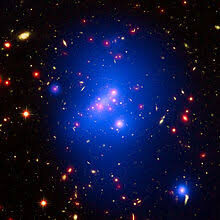Self-induced fully kinetic turbulence in collisionless accretion disks
Giannandrea Inchingolo (DIFA Univ. di Bologna)
Tuesday 22/10/2019 @ 14:00, Sala IV piano Battiferro
The magneto-rotational instability (MRI) is a crucial mechanism of angular momentum transport in several astrophysical scenarios, like accretion disks around black holes. The MRI has been widely studied using MHD models and simulations, in order to understand the behaviour of astrophysical fluids in a state of differential rotation. In particular, the MRI plays a crucial role in the transport of angular momentum and turbulence generation at late non-linear evolution of the system. In radiatively-inefficient accretion flow (RIAF) models for accretion onto compact objects, the accretion proceeds via a hot, low-density plasma with the proton temperature larger than the electron temperature. In order to maintain the two-temperature flow characteristic of RIAF models, the typical collision rate must be much smaller than the accretion rate. This suggests that the standard MHD approach may be insufficient, and a kinetic description is required instead. Leveraging on our recent implementation of the shearing co-rotating framework in OSIRIS 4.0, we present our recent studies on collisionless MRI in high-$\beta$ plasma. On sufficient large simulation domains, we observe the development of an MRI-induced turbulent regime during the late nonlinear stage of the evolution. We will explore the mechanism responsible for this effect, namely the development of a drift-kink instability on large domains, combined with the magnetic reconnection. The talk will be followed by a demonstration of the outreach project in virtual reality “Turbulence | Voice of Space” in which the data presented in the talk are artistically rearranged for the general public.

